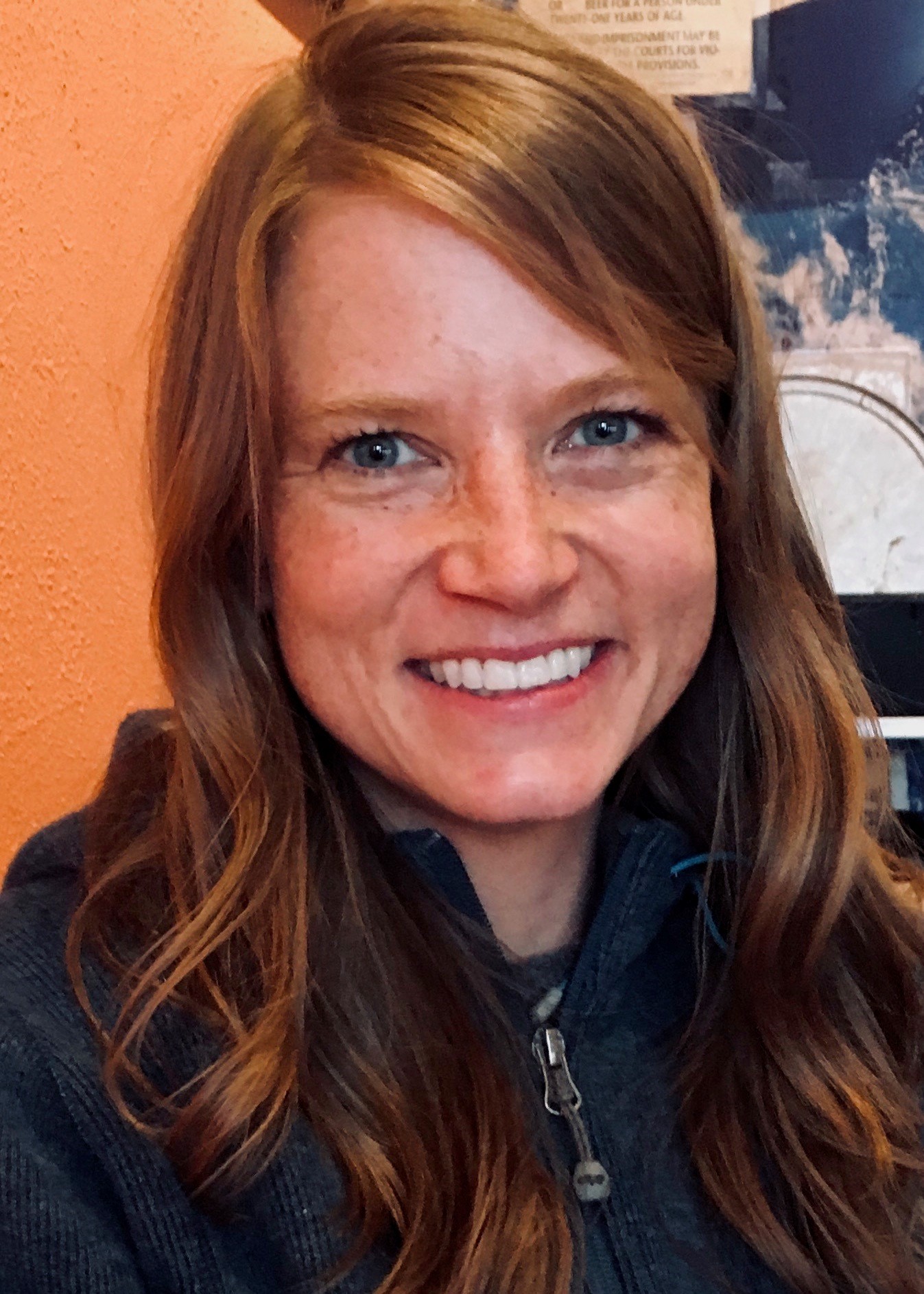Register
Register before 5pm on Thursday Nov 19, 2020.
Registration is free and grants access to the link for participating in the conference.
Fall 2020 SoCal-Nev (Virtual) Section Meeting
Online with ZOOM (zoom session opens by 10:15am)
Saturday, November 21, 2020
Tentative Program
(updated 11/19/20)- 10:15am: Zoom session opens. Please see email sent to registred participants on Fri 11/20/20 for meeting id and password.
- 10:25-10:30 Welcome Remarks by Dagan Karp, Harvey Mudd College
- 10:30-11:30 Invited Address by Beth Malmskog, Colorado College
Mathematics, Context, and Fair Redistricting: How Mathematics Can Detect and Prevent Gerrymandering in Colorado and Beyond - 11:30-11:45 Section Business Meeting
- 11:45-12:00 Break
- 12:00-1:20 Faculty and Student Contributed Paper Sessions
Call for contributed papers
Organized by Jim Brown, Occidental College - 1:20-1:30 Break
- 1:30-1:55 Association for Women in Mathematics Presentation
Organized by Shanna Dobson, CSU Los Angeles - 2:00-3:00 Invited Address by Francis Su, Harvey Mudd College
The Game of Cycles
- 3:00-3:15 Concluding Remarks by Dagan Karp, Harvey Mudd Collge
Register online
Register online before 5pm on Thursday Nov 19, 2020.
Registration is free and conducted via google forms. It grants access to the link for participating in the conference. On Friday November 20, the conference link/details will be emailed to the email address given in the registration . Please check your junk/spam folder if you do not receive the email.
If you are presenting in the Contributed Paper Session, you need to also complete this registration.
There will be no registration on the day of the conference.
Beth MalmskogColorado College
|
Beth Malmskog is an assistant professor at Colorado College. Her research is in number theory, combinatorics, and arithmetic geometry, including developing computational tools and applications. Beth grew up in Laramie, Wyoming and attended the University of Wyoming as an undergraduate. She earned her PhD in 2011 from Colorado State University. She is particularly interested in collaborative, interdisciplinary research, active learning approaches to teaching, working with students, and prison math education. Beth also enjoys writing about mathematics and received the 2020 Carl B. Allendoerfer Award from the MAA with her collaborator Kathryn Haymaker for their paper "What (Quiliting) Circles Can Be Squared?". |
Mathematics, Context, and Fair Redistricting: How Mathematics Can Detect and Prevent Gerrymandering in Colorado and Beyond
Gerrymandering is the process of manipulating the boundaries of electoral districts for political gain. This is considered by many to be deeply unfair, but it has been common practice in states across the country for more than 200 years. This talk will introduce ensemble analysis, a relatively new mathematical tool to detect partisan bias in map drawing, and describe how this perspective has become central to the national conversation about fair redistricting. I will share the work our group is doing in Colorado and discuss how the same techniques can apply in every state.
Francis SuHarvey Mudd College
|
Francis Su is the Benediktsson-Karwa Professor of Mathematics at Harvey Mudd College and a former president of the Mathematical Association of America. His research is in geometric combinatorics. In 2013, he received the MAA Haimo Award, a nationwide teaching prize, and in 2018 he won the MAA Halmos-Ford writing award. His new book Mathematics for Human Flourishing is an inclusive vision for the general public of what math is, who it’s for, and why anyone should learn it. |
The Game of Cycles
The Game of Cycles, introduced in my new book Mathematics for Human Flourishing (2020), is played on a simple connected planar graph together with its bounded cells, and players take turns marking edges with arrows according to a sink-source rule that gives the game a topological flavor. I first started playing this game with Christopher Jackson, an incarcerated man who is a featured contributor to my book. With Chris and several other mathematicians, we wrote a paper about this game, and I'll share some of the things we discovered.Call for Contributed Papers
The paper submission deadline has passed. If you have submitted an abstract, you should have already been notified if it was accepted.
You are invited to submit abstracts for the Contributed Paper Session of the Fall 2020 Section Meeting of the MAA, taking place on Saturday, November 21, 2020 virtually via ZOOM. The talks will each be 15 minutes with a 5-minute question and transition period.
These sessions accept contributions in all areas of mathematics, including research and pedagogy, and all complete proposals will be considered. The selection of talks will be based on interest to the expected audience, on common themes with other submissions, and on scheduling constraints.
Applications to present in the contributed paper session are submitted online and are due by 12noon PST on Thursday November 12, 2020. Applications include submitting an abstract (max 180 words) preferably using the specified LaTex template given in the example below (downloadable tex file of sample, compiled pdf version of sample). Only the items between \begin{document} and \end{document} need to be submitted.
\documentclass{article}
\newcommand{\presenter}[1]{\par\textbf{Presenter(s):}\ #1}
\newcommand{\others}[1]{\par\textbf{Other Author(s):}\ #1}
\renewcommand{\title}[1]{\par\textbf{Title:}\ #1}
\renewcommand{\abstract}[1]{\par\textbf{Abstract:}\ #1}
\newcommand{\theme}[1]{\par\textbf{Talk theme(s):}\ #1}
\newcommand{\audience}[1]{\par\textbf{Audience:}\ #1}\begin{document}
\presenter{Robben Teuffel and Robert Aroutiounian, CSU Channel Islands}
\others{Research advisor: Dr. Kathryn Leonard, CSU Channel Islands} %if applicable
\title{Skeletal Shape Modeling of the Corpus Callosum: Geometry-Based Classification for Automated Schizophrenia Diagnosis}
\abstract{Diagnosing schizophrenia is currently a process of trained symptom observation and individual interpretation by doctors. The objective of this research project is to automate diagnosis by using machine learning algorithms to categorize MRI-scanned brain images as healthy or schizophrenic based entirely on shape information of the corpus callosum. We utilize a skeletal shape model called the Blum medial axis (BMA) to capture local symmetries within the boundary curves of our corpus callosum images. We then extract the most visually salient path through the BMA with a depth measure called the Extended Distance Function to (1) decompose the BMA into three subparts associated with the genu, body, and splenium of the corpus callosum, and (2) compute the curvature of a one-dimensional representation of the boundary curve of the corpus callosum. Additionally, to quantify the observed size difference of the genu, we compute Shape Tubularity, which measures the tube-like qualities of shape parts. Finally, we apply supervised and unsupervised learning techniques to these features to distinguish between healthy and schizophrenic brain images.}
\theme{Applied Mathematics}
%Choices include Education/Pedagogy, History/Philosophy of Mathematics, Interdisciplinary Topics, Probability/Statistics, Geometry, Analysis, Number Theory, Graph Theory/Combinatorics, Algebra, Applied Mathematics, Topology, Linear Algebra, etc.
\audience{Linear Algebra and Multivariable Calculus (some data science knowledge will help)}\end{document}
Need access to latex to see if your abstract compiles? Overleaf.com is a cloud based latex program with a free registration. There are other options as well.
The application to present DOES NOT constitute registration for the conference. Presenters will be notified of their acceptances by Tuesday November 17, 2020. Presenters should also register for the meeting online no later than Thursday November 19 by 5:00pm PST.
The Student Resources page of the MAA website has useful articles about writing an abstract and giving presentations. Be sure to check it out for helpful tips!
Direct questions to Jim Brown (jimlb at oxy.edu).
